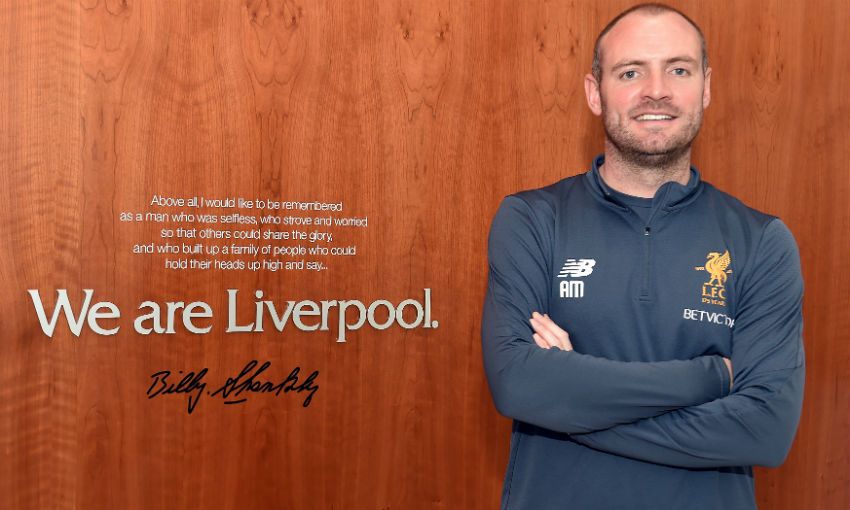Behind the Badge: Meet Liverpool's master of medicine
Andy Massey simply couldn’t understand.
“When I was playing, I got an injury and somebody told me it would take about a year to recover. I couldn’t get my head around the fact that anything takes a year to recover from,” Liverpool’s head of medical services recalls.
“The best way to figure that out was to study and I came from quite a sporty family, so I always wanted to stay involved in sport.
“So I got the injury and decided to go and do my A-levels to see if I could get in to physio.”
‘Get in to physio’ he did.
By the time he was 36 - a little under 18 years on from that career-defining and life-changing decision - Massey had progressed to the point at which he was offered the chance to head up the medical department of one of the world’s biggest football clubs.
“It’s a brilliant job,” the Northern Irishman smiles.
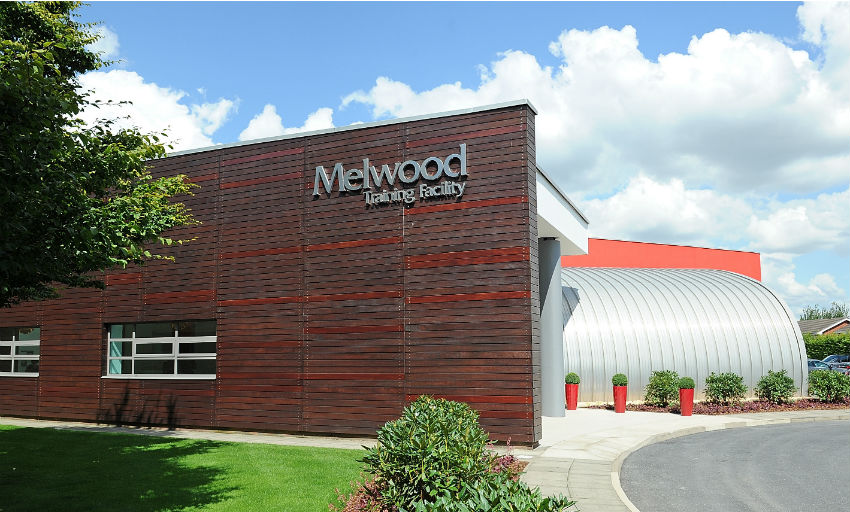
Recently, Liverpoolfc.com sat down with Massey in his office at Melwood to discuss his journey from curious teenager to the forefront of elite sports medicine in the UK and Europe, via stints in Aussie Rules football, ice hockey and boxing.
It’s a pathway that began in 1998 with the aforementioned injury - ‘what people would know as ‘footballer’s groin’’, he explains - that at once curtailed his nascent playing career and piqued his interest in physiotherapy.
A centre-half for professional clubs including Bangor and Linfield, as well his nation’s schoolboy team, Massey freely admits that he ‘wasn’t good enough’ to make a living as a player at a high level.
But it would transpire that he certainly was good enough to forge a career elsewhere in the sport.
“My aim was always to work full-time in sports medicine,” the 39-year-old says.
“I had no interest in working as a GP, for example. I want to work with players who want to get better, or want to improve, so players or people who have that drive.
“Also, it’s beneficial to work in the cutting edge side of things, to be able to find ways to get people better, quicker.”
After completing an undergraduate physiotherapy course at the University of Ulster, Massey sought to broaden his horizons by undertaking a Master’s degree in New South Wales, Australia.
It was there that he got his first job in the industry, with the Australian Institute of Sport and the Adelaide Crows, before returning home to study medicine at Queen’s University.
Roles with the Belfast Giants ice hockey club and the British Board of Boxing Control followed before, just nine years on from that professional breakthrough Down Under, Massey was appointed team doctor with Northern Ireland’s senior national football side.
Then, in the summer of 2013, the chance to work for Liverpool arose.
Massey takes up the story: “They advertised for an Academy doctor, and were actually one of the first clubs in the country to have a full-time Academy doctor.
“One of the people I’d been close to, a recruiter, told me to go for it and I umm-ed and ahh-ed. I wasn’t quite sure what a full-time Academy role would entail, but I went over, spoke to them and fell in love straight away with A) the club and B) the role.
“Even now I’d say it’s the best job I’ve ever had, the role at the Academy. I loved it.”
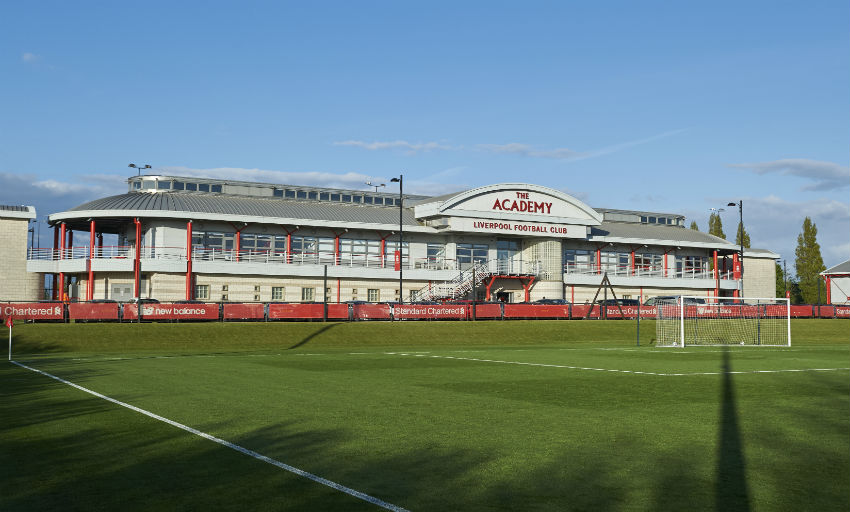
But while more than satisfied with his position at Kirkby, a combination of opportunity and ambition led him to Melwood, initially on a temporary basis, in January 2015.
And, following a stringent application process - ‘I wasn’t going to get it just because I was the Academy doctor; it’s Liverpool Football Club, they want the best people doing all the jobs’ - Massey’s move to the first-team post was made permanent that summer.
Since then, the Northern Irishman has progressed further. No longer just Liverpool’s first-team doctor, he now manages a team of 24 professionals across Melwood and the Academy.
“I head up the physio and sports science departments as well as the medicine department, so I’m looking at the overall performance side of things while also still doing the first-team doctor job,” he explains.
“Essentially, I’ve got two jobs now!”
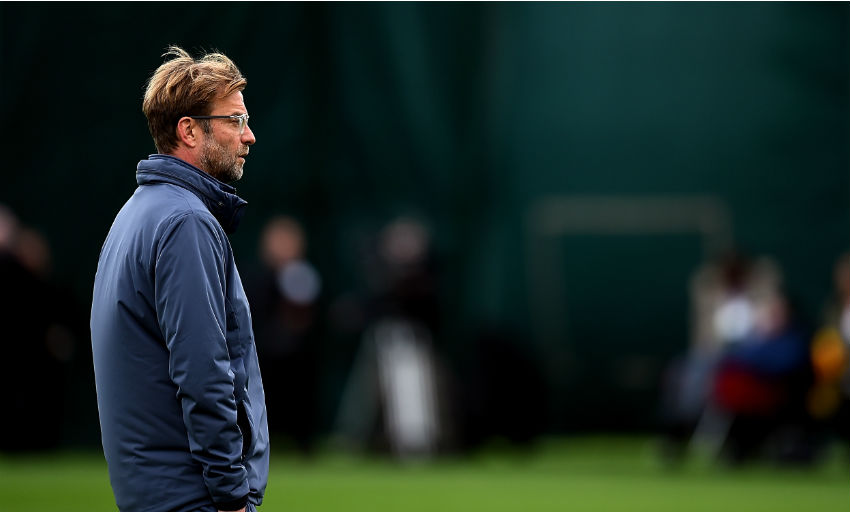
Around halfway through our conversation, Massey politely excuses himself.
It’s Friday, two days before the Reds’ next game, and Jürgen Klopp is upstairs in his office, awaiting a pre-training medical bulletin.
Upon his return a few minutes later, Massey is asked to offer an insight into what it’s like to lead a medical department that operates under a manager renowned for requiring huge physical output from his players.
“I always say that the manager is the most important person at the club and everyone else has to fit around his philosophy,” he notes.
“Jürgen’s philosophy is very much that we’ve got to run further, run faster, run quicker than every other team because if we can do that then the skill will take over.
“So we’ve got to put the players in a position where they can do that. When Jürgen first came into the club, we tried to put that in there but the boys weren’t up to that physical level yet to meet the demands.
“At one stage, we had 13 hamstring injuries but now, with the benefit of two pre-seasons, we’re seeing the boys work so much harder and they look like they’re more protected.
“A lot of the stuff we do from a medical point of view, we hope that it makes people less injury-prone but the statistics don’t back up. There’s a UEFA group that looks at injuries with data from the last 15 years and injuries remain constant.
“Arsene Wenger was saying this recently, but people take it the wrong way. You’re still going to get the same number of injuries, but what we try to do is get them back quicker now, which we are making a bit of headway in to.
“So far this year, touch wood, we’ve had very few soft-tissue injuries and that’s coming from the fact the players are more accustomed to doing the massive workloads because they’ve had two full pre-seasons under their belts.
“A lot of the studies coming out of a group in Queensland at the moment will say that for every 10 extra pre-season sessions that you do, you have a five per cent decrease in your soft-tissue [injury] rates.
“So this system seems to have worked for Jürgen throughout his coaching career and now it looks like it’s working for us as well.
“The manager’s brilliant at listening to us. Of course he wants the players back as quickly as possible but he’s brilliant. If we tell him that somebody is too big of a risk then he’ll listen to us.”
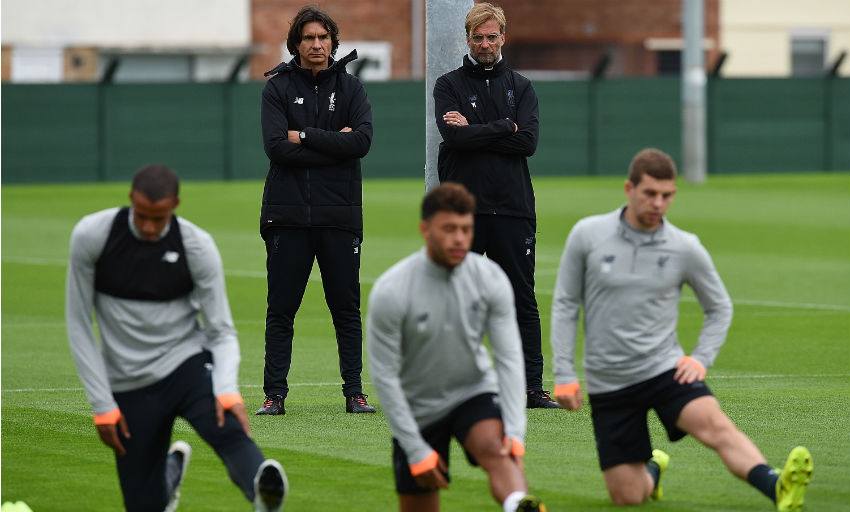
There is a consistent thread that runs through this discussion.
Variants on the phrase ‘getting players back better and quicker’ are repeated regularly. That is, Massey emphasises, one of his department’s most important aims.
But how does the club’s involvement in the Champions League affect that objective? How does the increase in the number of games, travel and workload impact on training, fitness and recovery regimes?
“Zeljko [Buvac] is brilliant at that,” Massey states.
“He’ll work very closely with Andreas [Kornmayer] in planning the sessions and they’ll try to periodise them going into matches. Now, what works for say Jordan Henderson might not work for say Sadio Mane, so sometimes you have to individualise those.
“At any one stage, we can have four different groups: the starting XI, the starting XI who are playing on the Tuesday or Wednesday, an injured group and players who aren’t in the squads at all. They all need different inputs, which is what Zeljko has in mind. He’s got a countdown brain, is what I call it!
“He can judge it by that and then Andreas is good about relaying it to us, and we can add in the injuries and we come together with it.
“Midweek matches mean that instead of dealing with one group, you’re potentially dealing with four different groups.”
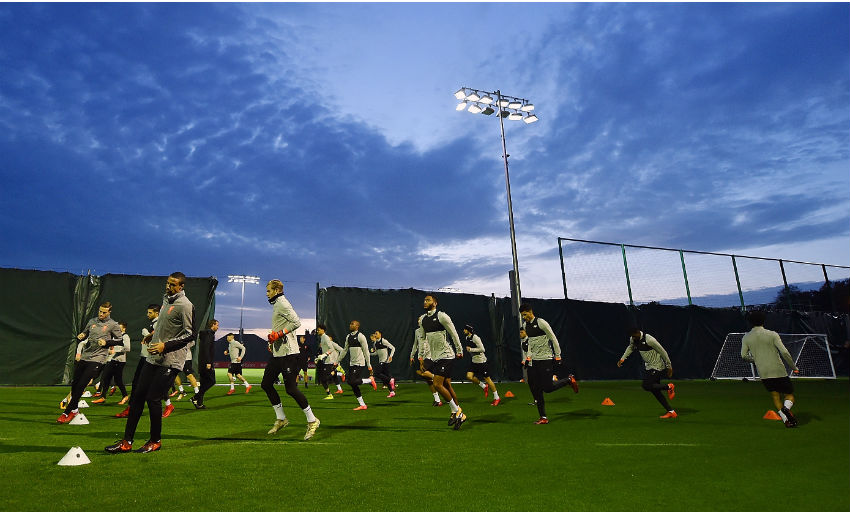
While the method behind achieving them is anything but, the objectives Massey and his team strive to accomplish are relatively simple.
“We’ve got two broad aims: One is performance enhancement and the other is decreasing the length of time it takes to have that performance enhancement,” he says.
“So ‘performance enhancement’ is: ‘What can we do that makes them able to perform at their optimum?’.
“It’d be lovely in a football team to have everybody performing at their optimum every time, but in a squad of 30-35 people, you’re always going to have some carrying knocks. Now, does that cause them to miss training? Not always, so how do we get them up to their maximum?
“Likewise, if we’ve got a muscle injury that normally takes 28 days [to recover from], and whether we touch them or don’t touch them it takes 28 days, then that means you could any doctor or physio off the street to come in.
“What maybe sets people apart working in football is that you’ll try to get that under 28 days - even if we cut that down by 25 per cent, that’s a week.
“If we can get them into a match earlier, do we get more points? It’s about trying to find ways to stop people getting injured, getting them back quicker and getting them back better.”
Along with Liverpool’s participation in UEFA’s elite club study, an internal audit process - which produces data on the number of preventable and non-preventable injuries sustained by the Reds’ players per 1000 hours of training and match time - allows Massey to analyse his department’s performance season-on-season.
“Since I’ve come into the club we’ve tried to make it as standardised as possible and it’s about trying to make everything binary so we can compare it,” he says.
“The target, every year, is always to reduce the amount of injuries that can be reduced and to cut down rehab times.”
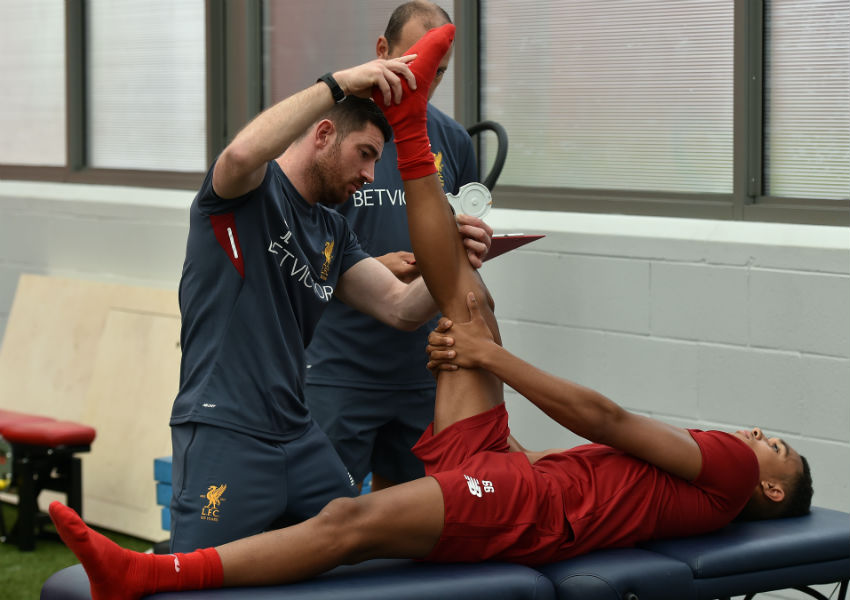
Somehow, Massey - a married father of three young children with, in his own words, ‘two jobs’ - still finds time to study.
His thirst to discover new ways to innovate, new ways of ‘getting players back better and quicker’, has led him to taking up a part-time professional doctorate Phd at John Moores University
“You have to keep learning,” Massey says, matter-of-factly.
“I always say that whenever you go through medical school that what you learn in first year, by the time you get to your fifth year, 50 per cent of it is out of date, so things evolve so quickly.
“We’re working in an industry where there’s an evidence base for a lot of stuff, but we’ve got to be cutting edge.
“Sometimes we’ll delve into the non-evidence based stuff: If there’s a new treatment coming out, we can’t wait two years for it to be proven by someone else.
“We’re forever trying to find new things to do, learn off other sports, learn off other doctors. I’m in close contact with quite a few of the other Premier League doctors, I’m very friendly with the Manchester United doctor, very friendly with the Arsenal doctor.
“They’re two great lads who’ve been in the job for years - and they’ll maybe have something that I learn off them, or I might tell them something… well, they probably think I’m stupid, actually!”
What about the future, then? How long does Massey want to carry on in this ‘brilliant job’ of his?
“I love it and I’ll do it for as long as I can, but the one sacrifice that you never have a weekend free,” he notes.
“It’s seven days a week, pretty much for 11.5 months a year, so I don’t get to bring my kids to the football. The boys are Reds and they’ll come and watch but I don’t get to experience it with them. I can’t take them to their own games on a Saturday, so I feel guilty about that.
“It’s a rewarding job and people would kill to do it so I’m very grateful and very lucky. There aren’t many people who stay in jobs at Premier League clubs for their whole careers because it is so demanding, you get quite a lot of burnout.
“Steve McNally at Manchester United and Gary O’Driscoll at Arsenal, they’ve been in their jobs 10 years and everybody looks at them and thinks ‘wow’.
“I’ve been here two years so if I can do another eight, I’ll be made up.”
‘Behind the Badge’ is a regular feature on Liverpoolfc.com which aims to tell the individual stories of the numerous men and women who work tirelessly away from the spotlight in an attempt to make Liverpool FC successful.
We speak to various members of staff across the first-team, Academy and Ladies set-ups who dedicate their lives to the club each and every day, covering a variety of different roles that make a vital contribution in preparing the Reds for action.


